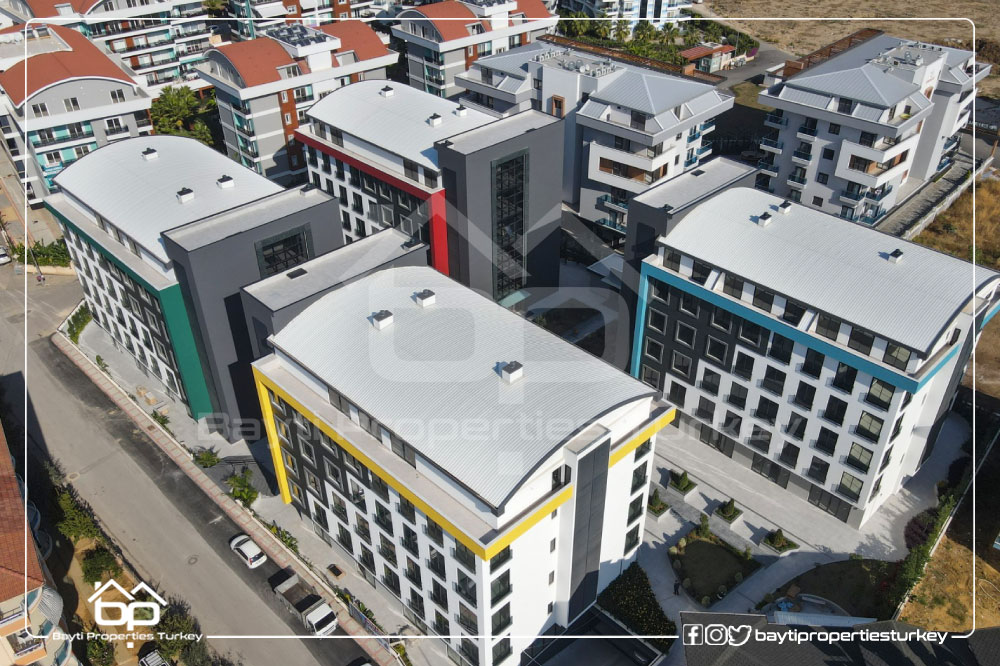Turkey has become a significant market for foreign investors interested in purchasing property. In the past ten years, the number of foreigners living in Turkey has increased sevenfold, indicating the country’s potential as a profitable real estate investment destination. With rampant inflation and a sluggish economy, Turkey has been encouraging foreign investment through property sales to meet economic needs.
Foreigners can purchase any property in Turkey and receive a one-year residence permit in return under Ankara’s 2017 policy. The policy also enables foreigners to apply for Turkish citizenship by purchasing property priced at $250,000 or more. The conflict in Ukraine has caused many Russian and Ukrainian nationals to invest in Turkish property, with some seeking citizenship.
Russians have become the third-largest group of property buyers in Turkey, with Iranians and Iraqis leading the list. The February 2021 invasion of Ukraine by Russia has prompted Russians to buy 509 homes in Turkey, with 111 homes sold to Ukrainians. According to real estate website Turk.Estate, since February 2021, the site has registered a 51% increase in searches from Russia and a 63% increase from Ukrainians.
The most in-demand locations for Russian and Ukrainian property investors in Turkey are Antalya, Istanbul, Izmir, Ankara, and Bursa. According to Turk.Estate, Russians and Ukrainians purchased 25% of the properties sold in Antalya in February 2021, with a 96% increase in purchases by Russians and 85% by Ukrainians. However, the Turkish real estate market is affected by soaring inflation, which reached an official 79% in June 2021, leading to doubled property prices in one year.
Russian and Ukrainian property investors have been showing increased interest in the Turkish real estate market in recent years, with Antalya, Istanbul, Izmir, Ankara, and Bursa emerging as the most in-demand locations. According to a report by Turk.Estate, in February 2021, Russians and Ukrainians purchased 25% of the properties sold in Antalya, a popular coastal city in southern Turkey. This marks a significant increase of 96% in purchases by Russians and 85% by Ukrainians, compared to the previous year.
While the Turkish real estate market offers attractive opportunities for foreign investors, it is also facing some challenges. One of the biggest concerns is the rising inflation rate, which reached an alarming 79% in June 2021. This has led to a doubling of property prices in just one year, causing concerns among investors who fear that the market may become overpriced and unsustainable in the long run.
Despite these concerns, the Turkish government has been taking measures to address inflation and support the real estate market. The government has implemented policies aimed at stabilizing the economy and reducing inflation, which could help alleviate some of the concerns of investors. Additionally, Turkey offers several incentives for foreign investors, such as citizenship through property investment, which has attracted many foreign buyers to the market.
Overall, while the Turkish real estate market offers potential for high returns, investors need to carefully consider the risks and challenges before making any investments. It is important to conduct thorough research and work with reputable real estate agents and legal advisors to ensure a successful and profitable investment experience.
Russian investors, in particular, are attracted to Turkey’s property market for its potential to expand financial activities, given the assets sanctioned in Russia. These investors are willing to pay high prices to obtain Turkish citizenship, with some buying overpriced properties without negotiating prices. Ukrainians are more focused on short-term deals, with the expectation of returning to Ukraine after the conflict subsides.
In conclusion, Turkey’s real estate market has become an attractive investment destination for foreign buyers, with increasing numbers of Russian and Ukrainian nationals investing in property. While the market’s potential for profit is significant, investors need to consider the high inflation rates and the Turkish government’s regulations for foreign property buyers.












